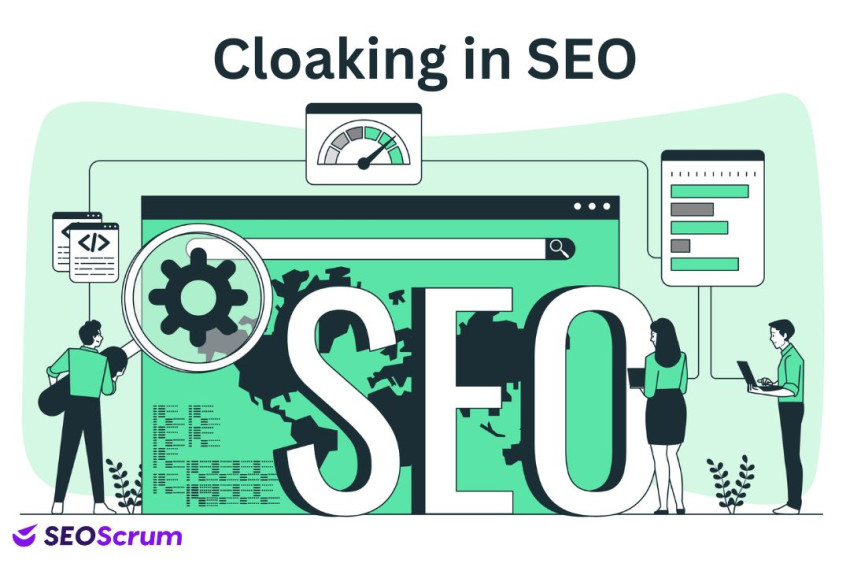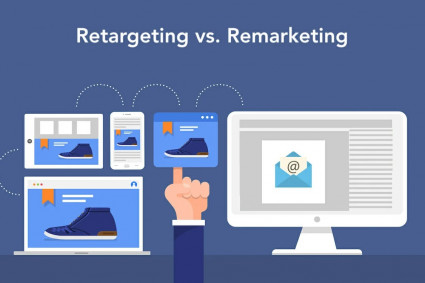
In the ever-evolving world of search engine optimization (SEO), the temptation to find shortcuts can be strong. One such "shortcut" is cloaking in SEO, a deceptive tactic aimed at manipulating search engine rankings. While it might sound appealing at first glance, it's crucial to understand that cloaking ultimately hurts your website in the long run.
How does cloaking in SEO work?
Imagine you have a store with two display windows. One window showcases products you think will impress a health inspector, while the other displays what you actually sell to customers. Cloaking in SEO operates similarly.
Here's the breakdown:
- User-agent detection: Websites can identify the "user-agent" of visitors, which essentially reveals who they are. When a search engine bot (like Googlebot) visits your site, the website might detect it and display a different version of the content, often heavily stuffed with keywords, hoping to rank higher in search results. Regular human visitors, however, would see a different, potentially unrelated page.
- IP address filtering: Some websites create a list of IP addresses associated with search engines. When a visitor's IP matches one on the list, the website shows them the "optimized" content, while others see the regular version.
- JavaScript manipulation: The actual content users see might be hidden within JavaScript code. Search engines can typically read and interpret JavaScript, so they see the hidden content and potentially rank the website higher. However, if a user has JavaScript disabled in their browser, they'll see a different, often less informative version of the page.
Why is cloaking in SEO bad?
While the goal of cloaking might be to trick search engines, the consequences are significant and detrimental:
- Search Engine Penalties: Search engines like Google are constantly improving their algorithms to detect cloaking attempts. Getting caught can lead to harsh penalties, like:
- Lower rankings: Your website's visibility in search results could plummet, making it difficult for potential customers to find you.
- De-indexing: In extreme cases, your website might be completely removed from search engine results, making it invisible to everyone.
- Manual penalties: Search engines might require additional actions from you to regain visibility, adding complexity and time to the process.
- Frustrated Users: When users land on a page expecting the content they saw in search results, they're met with a disappointing and irrelevant experience. This leads to frustration, distrust, and high bounce rates (users quickly leaving your website), ultimately harming your reputation and potential for genuine user engagement.
- Waste of Resources: Maintaining cloaking requires constant technical effort and resources to ensure the deceptive content remains hidden from users while visible to search engines. This effort is much better directed towards creating valuable content, building organic backlinks (links to your website from other reputable websites), and improving user experience, leading to sustainable growth and success.
Alternatives to Cloaking:
Instead of resorting to unethical practices like cloaking, focus on ethical and sustainable SEO strategies:
- Create high-quality content: Develop informative, engaging, and valuable content relevant to your target audience. This naturally attracts both search engines and users.
- Optimize for relevant keywords: Use relevant keywords strategically throughout your content, but avoid keyword stuffing as it appears unnatural and can negatively impact rankings.
- Earn backlinks organically: Build relationships with other reputable websites in your niche and strive to earn backlinks naturally, as they signal trust and authority to search engines.
- Prioritize user experience: Ensure your website is user-friendly with clear navigation, fast loading times, and a mobile-responsive design. Search engines prioritize websites that offer a positive user experience.
- Follow white-hat SEO practices: Stay updated on the latest SEO guidelines and adhere to ethical techniques that focus on creating a valuable and transparent website for both users and search engines.
Remember, building a strong and honest online presence requires genuine effort and ethical practices. By focusing on valuable content, user experience, and natural ranking strategies, you can achieve sustainable success and attract your target audience organically, leaving the deceptive tactics like cloaking behind.






